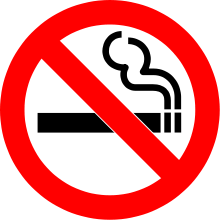
A study presented at EULAR 2012, the Annual Congress of the European League Against Rheumatism, reinforces current thinking that smoking negatively affects treatment response in rheumatoid arthritis (RA) patients treated with anti-tumour necrosis factor (anti-TNF) drugs.
This American study, the largest of its kind, followed 2,811 treatment naïve patients initiated onto anti-TNF therapy. Of the study group, 19% (n=521) were smokers and 81% (n=2,290) were non-smokers. Smokers had significantly higher scores on the Clinical Disease Activity Index (CDAI)* and DAS28** at six months than non-smokers. There was no significant difference in the odds of smokers versus non-smokers in achieving at least moderate EULAR*** response at six months and no difference in the change of mHAQ****.
Professor Ozlem Pala from the University of Miami Miller School of Medicine, USA and lead author of the study said: “There have been several studies which have investigated factors affecting response to anti-TNFs, but this is the first study to investigate response factors in such a large cohort of people. Being able to better predict response rates to treatment means that rheumatologists can discuss the findings with their patients who smoke and strongly encourage them to quit. This may also motivate them to develop successful strategies for smoking cessation in order to maximize effect of this expensive group of medications and potentially increase quality of life for these patients.”
Disease activity measures at baseline were similar for DAS28 (approximately 3.7, standard deviation [SD]: 1.6) for both groups but higher for CDAI (17.1, SD: 13.8 vs 15.5, SD: 12.9) and mHAQ (0.5, SD: 0.5 vs 0.4, SD: 0.4) in smokers and non-smokers, respectively.
Patients were taken from the Consortium of Rheumatology Researchers of North America (CORRONA) registry. Mean duration of follow-up per patient was 3.4 years (SD: 2.6). Patients enrolled in the study were followed for up to 10.2 years. Biologic naïve patients were followed for six months after initiation of an anti-TNF and outcomes of interest included DAS28, CDAI, mHAQ and EULAR response criteria after six months on therapy.